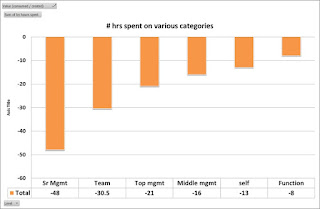My “Firsts”
for the second time
“Health is Wealth” - I realised so much in the last
eight weeks when I underwent spine surgery to deal with the sudden pain in my
left leg due to nerve compression and developed a “foot drop” condition in a
very short period. I am on a good
recovery path with support from doctors and therapists, and loads of love from
family, colleagues, friends, and my company.
I developed this condition all of sudden, even a week
before I did my 10K run in the Chennai marathon, two weeks before I had my annual
health check and all “GREEN”
When I rewind my recovery path, I experienced many
“firsts” for the second time in my life and I received so much encouragement
from people around me.
When I made my first baby steps after
surgery, my parents were in so much joy as they were when I was a toddler. This time my children witnessed my first
baby steps and encouraged me.
-
When I went to the washroom on my own
for the first time
-
When I did 1000 steps at a stretch
for the first time
-
When I sat for 30 minutes at a
stretch for the first time
-
When I climbed a flight of ten stairs
for the first time
-
When I wore socks on my own for the
first time
-
When I went to a nearby store to buy
and carry a loaf of bread for the first time
I don’t remember any of these “firsts” when it
happened for the first time, these “firsts” for the second time will be in my
memory forever. Some
more firsts are to come in the next few weeks/months, such as bending to pick
up things, bi-cycle rides, driving, and running.
The support I had from my company, Shell is enormous
(#shellcares); my colleagues are awesome, they did regular check-ins, sent flowers,
and visited me. My friends, my relatives
the unconditional love from my immediate family, my parents, my brother, my wife
and my three gems (children) are good complements to medicines. I cannot miss mentioning my other
companions during my recovery, books, music, and prime videos.
I am looking forward to my full recovery and being
part of the 2025 Chennai Marathon 10K run!
Health is wealth, including mental health.














